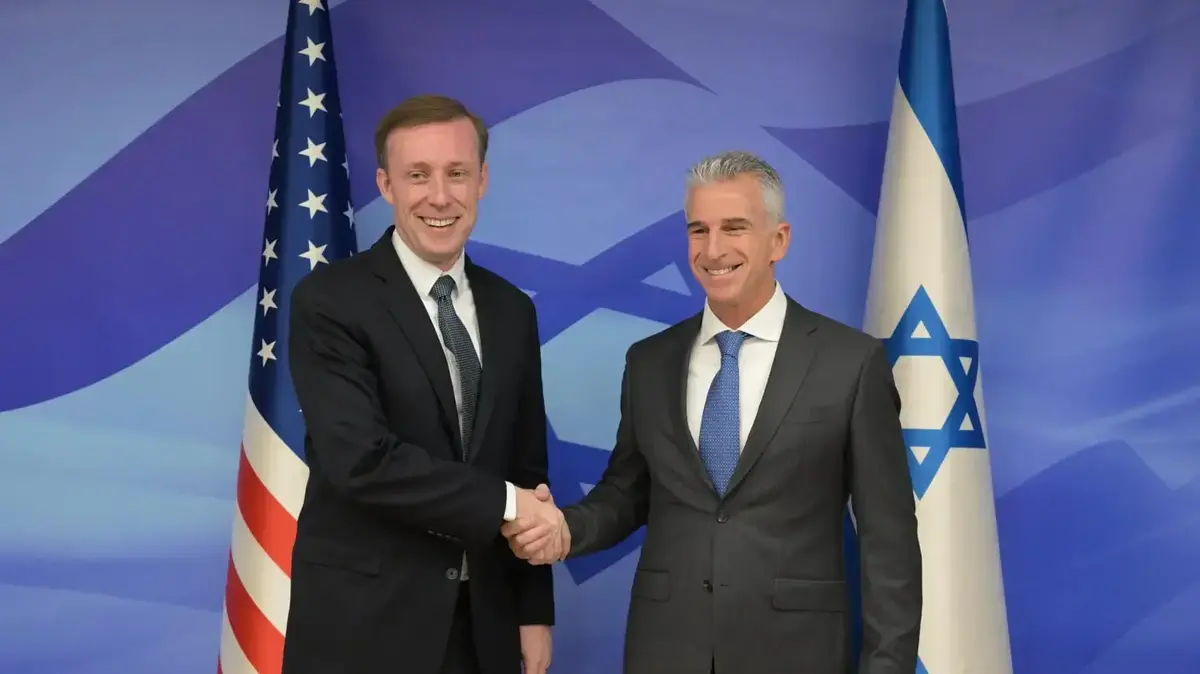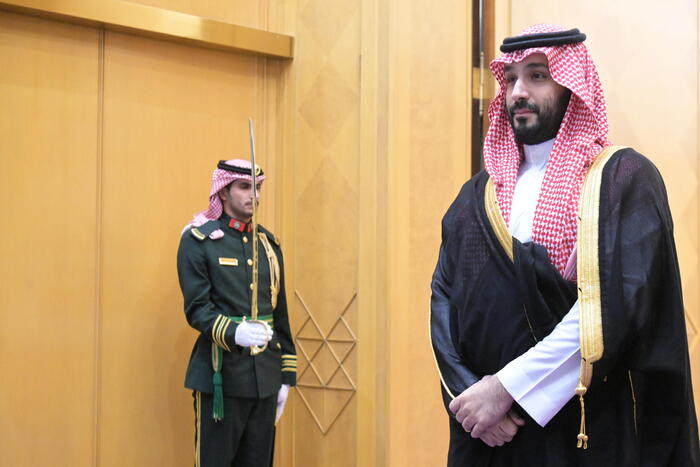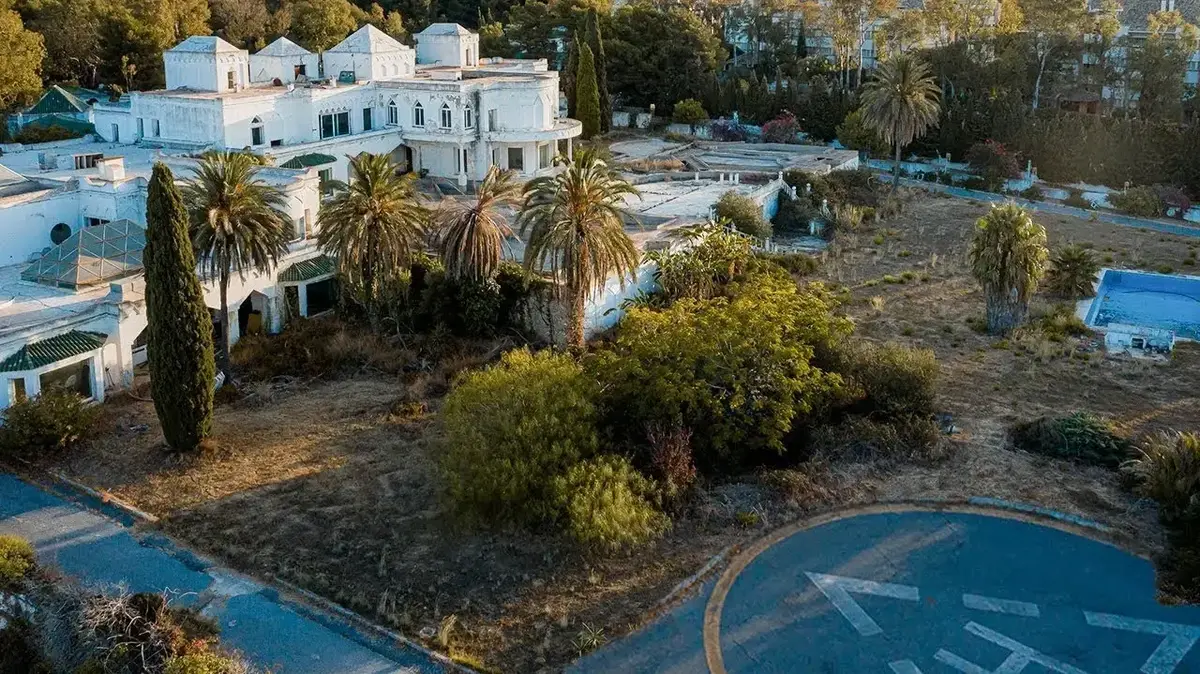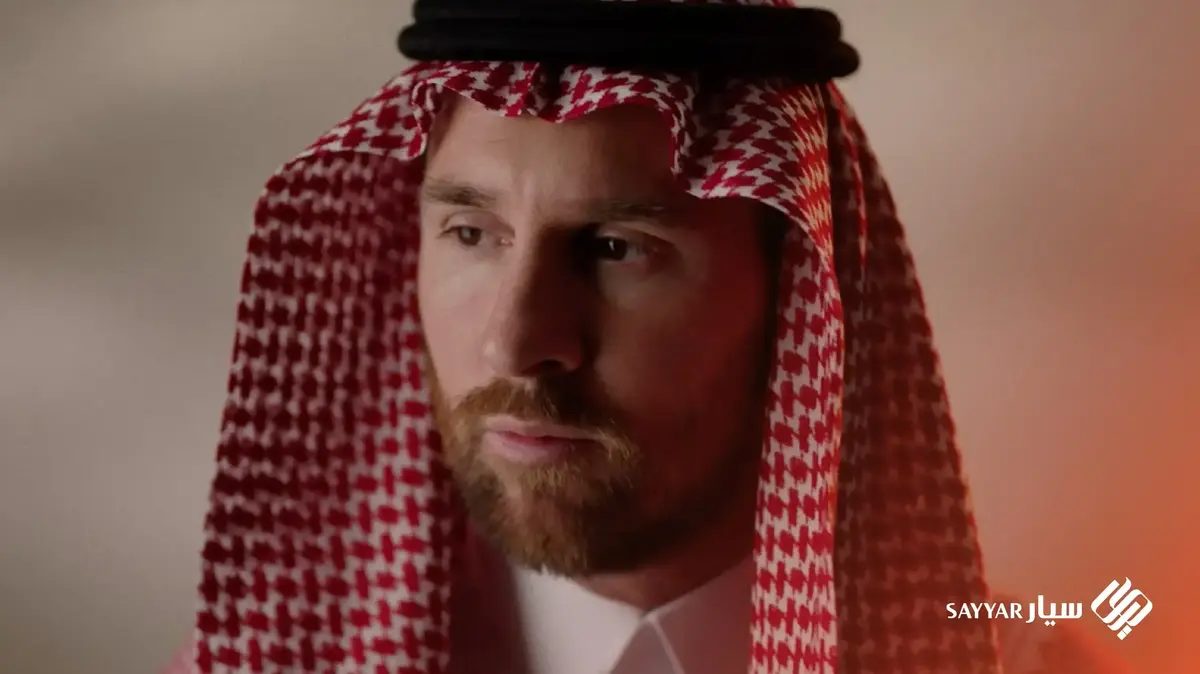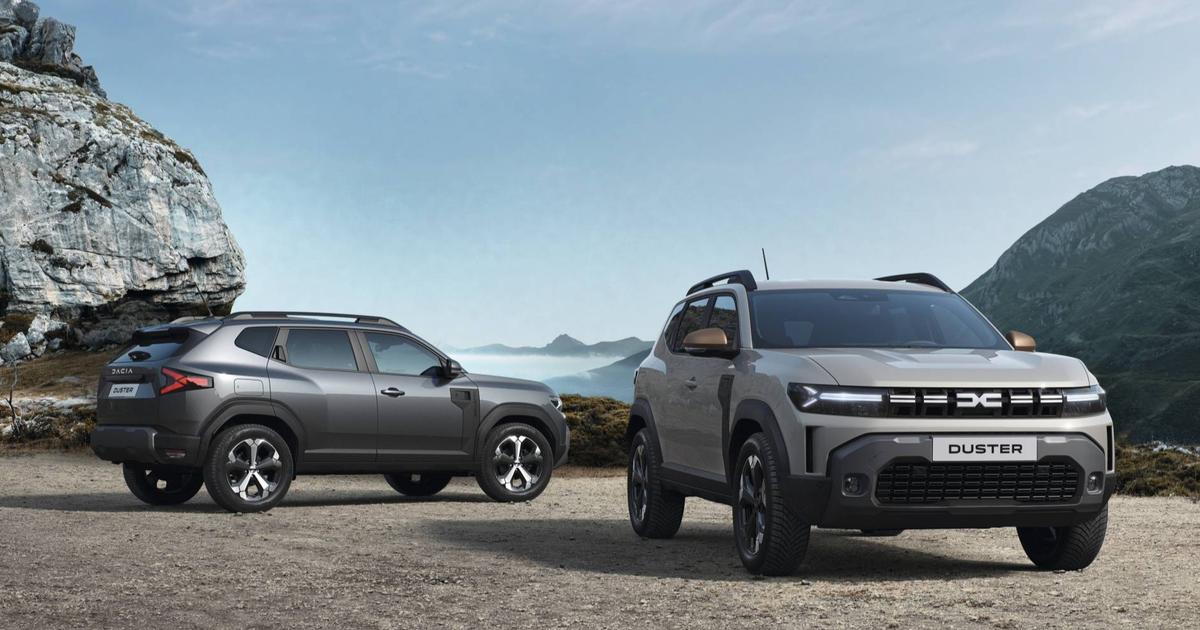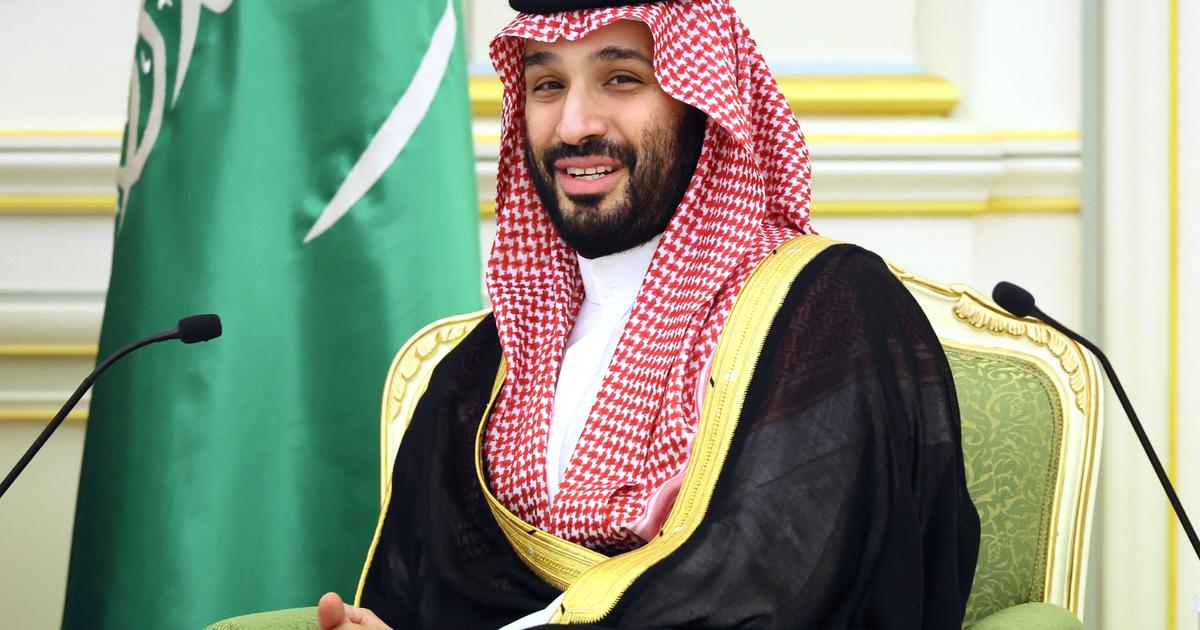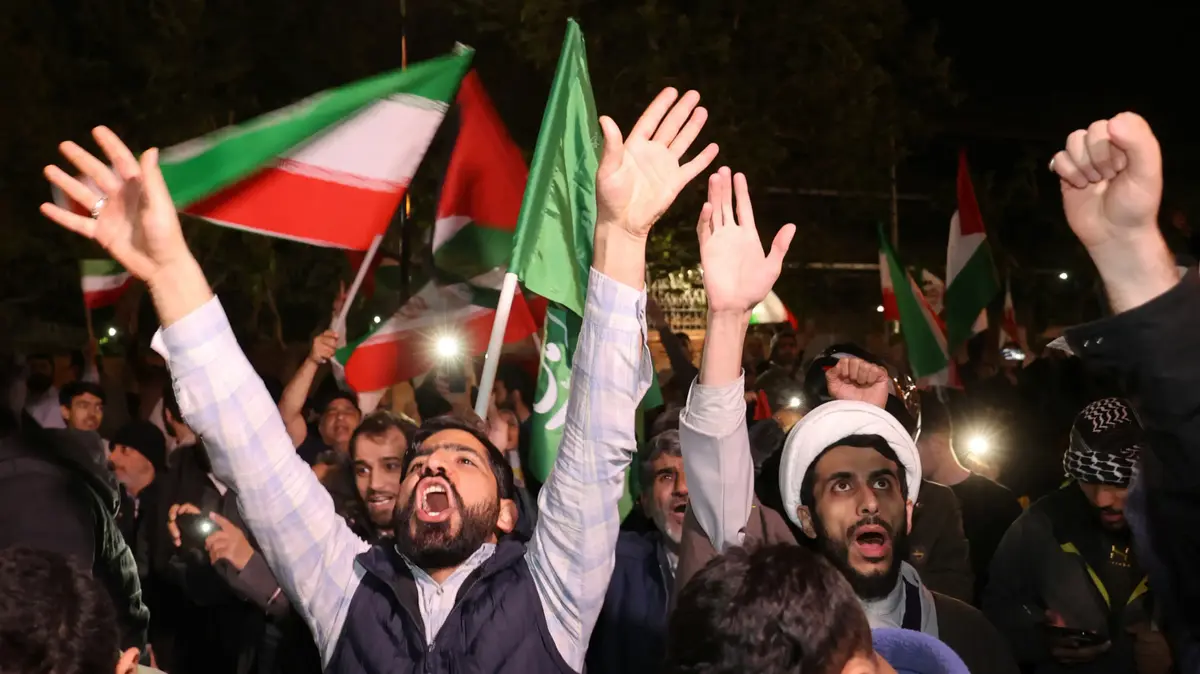It is in many ways a record-breaking IPO, which will be completed on Wednesday: The shares of oil giant Saudi Aramco debut on the Tadawul Exchange in Riyadh. Almost everything about the transaction is gigantic, much bizarre - and at the same time enormously significant for the Saudi kingdom and its position in the world.
An overview of the most important questions and answers on the "Initial Public Offering" (IPO) of the year.
What is Saudi Aramco for a company?
The 100 percent state-owned company is the largest oil producer in the world. Aramco contributes about ten percent of global crude oil production and is also the most profitable group in the world, with a net profit of $ 111.1 billion last year.
Aramco has a turbulent, American-style story: In 1933, the Saudis gave the Standard Oil of California permission to drill for oil in the kingdom. In 1936 Texas Oil, later the predecessor companies of the oil multinational Exxon and Mobil Oil, took part in the California-Arabian Standard Oil Co. Aramco was now owned by four US producers.
From 1944 the company was called Arabian-American Oil Company (Aramco). In the 1970s, Saudi Arabia nationalized Aramco; For the first time, the country is launching shares on the stock exchange.
How big is the IPO?
World record-large. The royal house wants to sell 1.5 percent of the shares at a price of 32 riyal, equivalent to $ 8.53. With then revenues of $ 25.6 billion Aramco topped in this discipline - the key indicator in initial public offerings - the previous record holder Alibaba.
The Chinese online trading platform had "only" raised about $ 25.0 billion in its IPO in 2014. Outperforming Alibaba was almost more important to the Riyadh rulers than the IPO itself, investment bankers said. In addition, Aramco is the world's largest publicly traded company at $ 1.7 trillion.
And the Saudis could have sold even more stocks or demanded a higher price: According to Riad, the issue was 4.7-fold oversubscribed, which means there was significantly more demand than Aramco shares were for sale. This suggests that the stock will continue to be in demand after the start of the stock market trading and that its price will rise.
Were there any problems with the IPO?
And how. The project failed several times, most recently due to drone attacks on refineries. And actually, the Saudi royal family, especially Crown Prince Mohammed bin Salman (MbS), had much greater ambitions. Five percent of the shares to be redeemed should be redeemed at least $ 100 billion. The market value should be at least two trillion dollars.
Susan Walsh / AP
Crown Prince Mohammed bin Salman, short MbS
Now everything is a bit smaller, albeit still huge. Most of the time MbS had to go back because western investors were not interested - in the US, Europe and Japan even sales presentations were canceled. The professional investors were less disturbed by the rabid behavior of the Saudi government against regime critics or lack of environmental aspects. Rather, Riad Aramco continues to control 98.5 percent, almost single-handedly eliminating huge dividends - most recently Aramco paid out $ 75 billion.
In addition, the dividend yield is unattractive. "It is below the average of other major oil companies," says fund manager Omar Abu Rashed of Union Investment in Frankfurt. Shares of rivals like Shell or ExxonMobil are paying more dividends. Another deterrent is that the shares are only traded on the Tadawul Exchange in Riyadh. The IPO is therefore due to the enthusiastic Saudi investors.
More at SPIEGEL +
What influence does the Saudi royal family have?
It is almost almighty. MbS determines where Aramco is. For nearly a day he had been waiting for MbS and Aramco CEO Yasir Al-Rumayyan in the royal palace, he saw neither, recently told an annoyed investment banker. Listened to the insider, the two probably would not have him anyway. "The Saudis are completely non-bureaucratic, and if they pay you, you're just a servant."
The selection of investment banks, which commissioned MbS with the sale of shares, was also very telling. As many as 19 foreign addresses were mandated - more than ever before on an IPO. And, of course, world record.
What do Aramco and Saudi Arabia have from it?
What is actually changing for Aramco is still uncertain. As long as the stocks are not, or are scarcely subscribed, by investors from the West and traded on Western stock exchanges, everything probably stays as it is.
For MbS on the other hand changes a lot. The IPO is the key to his Progress Vision 2030 project, which aims to make Saudi Arabia independent of oil revenue and fundamentally modernize it. He needs a lot of money for that. For example, the ultramodern retort town "Neom" on the Red Sea is planned with exclusively sustainable energy sources, fully digitized.
A whopping 500 billion dollars should cost this prestigious project alone. Saudi Arabia should also be successful in the entertainment industry and in tourism. The bureaucracy is to be digitized and the education system reformed. MbS therefore does not only partially privatize Aramco; Many other state-owned enterprises are to follow in the next few years. For this to work, the Aramco IPO is crucial.
Why is the IPO interesting for the West?
Even though he has flopped so far from the Western point of view: The IPO is a litmus test for how serious MbS means with the opening of his country. In this respect Aramco is of geopolitical importance. For the term of MbS, the strongman of Saudi Arabia, is now in its third phase. Initially praised in the West as a surprisingly resourceful reformer, who builds cinemas and allows women to drive a car, he was considered after the allegedly initiated by him murder of the regime critic Jamal Khashoggi in 2018 as unsatisfactory.
Meanwhile, it is being courted by the West again - Saudi oil seems too important for the western industrialized countries, as well as Riad's political influence in the heated Gulf region. The Aramco IPO and what follows from that, especially with regard to the "Vision 2030", are crucial to the relationship of the ultra-religious royal family of the Wahhabis, guardians of the Muslim holy sites of Mecca and Medina, to the west.
Hamad I Mohammed / REUTERS
How do investors benefit from the IPO?
Western small investors not at all - they were excluded from the outset. Western institutional investors, insurance companies or pension funds, were only able to subscribe for Aramco shares if they had a special admission as so-called "qualified foreign investors" for the Riyadh Exchange; There are about 1500 of them. However, they have hardly made use of their special status (see "Problems with the IPO").
The situation is quite different in the country itself. Rich Saudis struck, but probably more for understandable fear of reprisals of the royal family, they should have failed their patriotic duty. In 2017, MbS had hundreds of members of the nomenclature at the Hotel Ritz Carlton imprisoned for alleged corruption and released only against € 86 billion "ransom" again.
Saudi retail investors, on the other hand, rescued their IPO with their willingness to buy. For them Aramco is a national cultural asset, many other ways to create money, there is not. This leads to very own difficulties. "We had problems telling people that a stock could fall as well," says a consultant. "That's like the time with Deutsche Telekom."
How do banks benefit?
Even if many bankers were annoyed by the arbitrariness of their clients (see point "Influence of the royal family"): It remains neat fee hanging. In about 90 million dollars, it is said that Aramco had set 0.35 percentage points of the issue volume. Even the Deutsche Bank came to the train, although that just ceases its stock trading.
Small beauty spot: Alibaba is said to have distributed $ 250 million to investment banks - at least on this point MbS has missed the world record clearly. However, he also needs the money otherwise (see point "What has Saudi Arabia of it").
What happens after the IPO?
MbS is likely to tackle the next privatizations, such as Riyadh airport. However, the bureaucratic structures in the country are so resinous that Western interest in such stocks can not necessarily be presupposed. Nonetheless, the investment banks MbS will continue to be at their service - they are finally hoping for new orders to sell shares. Its wealth of oil has always made Saudi Arabia the petrol station of the world - the impending wave of privatization is now making the kingdom a Dorado for Western investment banks as well.


